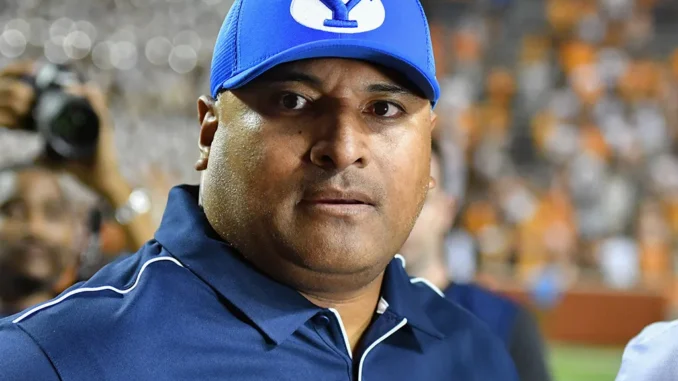
As of now, there has been no verified information regarding Kalani Sitake rejecting or re-bouncing a $234 million contract extension. If such an event were to occur, it would likely make major headlines in the sports world, especially given Sitake’s role as the head coach of BYU’s football team. This type of story typically garners attention for its implications on both Sitake’s future and the broader collegiate football landscape.
If this were a real news story, it could involve a number of potential reasons for Sitake to reject or reconsider such a significant contract offer, even one of that magnitude. Here are some speculative factors that could contribute to a decision like this:
1. **Personal or Family Priorities**: Sitake could feel that his current situation, including his family life or his personal goals, does not align with the commitment that a $234 million contract would require. As a coach, this would be a huge responsibility, and family or personal time could weigh heavily in his decision.
2. **Program Goals and Alignment**: A significant contract extension might come with added pressure to achieve higher success or certain program goals. If Sitake felt that the direction of the contract did not align with his vision for BYU football or its culture, he might choose to walk away from the deal.
3. **Better Opportunities**: If there were another high-profile program or professional opportunity on the horizon that Sitake believed was a better fit for his career and aspirations, he might re-bounce the offer in favor of pursuing that path.
4. **Concerns Over Team Dynamics or Support**: A coach’s decision to stay or leave can sometimes be influenced by the overall support from the athletic department or university administration. If Sitake felt that the terms of the contract extension didn’t provide him with the resources, autonomy, or backing he needed to succeed, he might decide it’s not worth the commitment.
5. **Health or Long-term Goals**: After years of coaching, Sitake might decide that stepping back from the high-stress environment of major football programs could be the best choice for his health or long-term well-being.
It would be interesting to see how such a story develops, as it could signal a shift in the college football coaching landscape. If further details emerge, it would likely be covered extensively by sports media outlets.
Leave a Reply